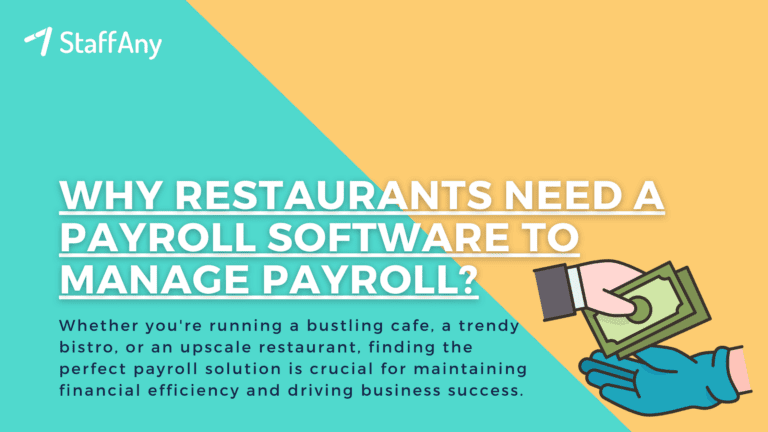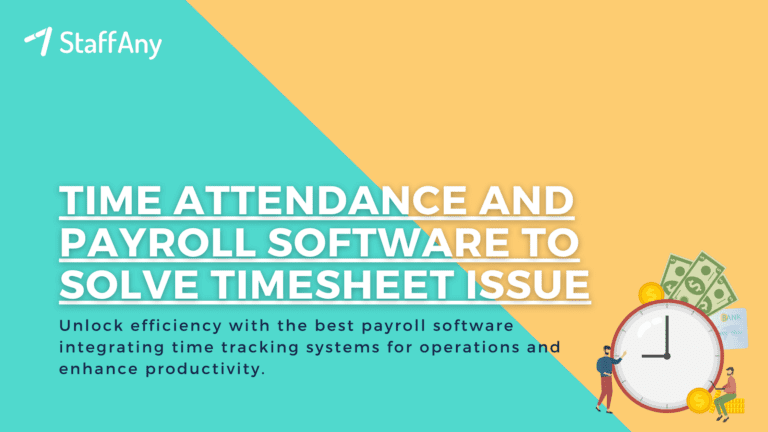When opening a business in Malaysia, it’s essential to know the types of employee allowances to attract and retain scarce F&B talents. Along with providing a salary and mandatory benefits, offering subsidies and workplace facilities can also boost employee morale and productivity.
Before we list the types of employee allowances in Malaysia, let’s understand what constitutes Employee Allowance.
What is an Employee Allowance?

Employee Allowance is an additional payment made to employees on top of their regular salary. It covers expenses related to their jobs such as travel or housing costs and is typically provided regularly, either monthly or annually, as part of their total compensation package.
It’s important to distinguish between allowances and salary. Salary is the base pay received by an employee at regular intervals (e.g. weekly, bi-weekly, or monthly), whereas allowances are supplementary payments for specific job-related expenses. Salary is a fundamental part of an employee’s compensation and is not considered as reimbursement, unlike allowances.
According to the Employment Act 1955, there are benefits which are mandatory, such as sick days and annual leave. Other mandatory benefits include working hours and lay-off benefits. Other than the mandatory ones, some benefits are made optional, such as retirement plan options and insurance.
Offering allowances to employees has numerous benefits for the staff and the employer. Firstly, a motivated and productive team improves job performance and increases overall productivity. Additionally, employees feel financially secure and valued, which leads to improved job satisfaction and employee retention. When employees feel fairly compensated and provided with a stable income, they are more likely to stay with the company long-term.
Providing allowances can make your business more attractive to top talent. Companies that offer competitive salaries and benefits are better positioned to attract the best candidates, which can ultimately improve the company’s performance.
Read more: Understanding the Importance of Human Resource Planning
Types of Allowance for F&B Employees in Malaysia

There are various types of employee benefits you can provide for your staff. In Malaysia, the types of allowances commonly offered to F&B employees include:
1. Meal Allowance
Meal allowance is typically given to cover the cost of meals during work hours. A meal allowance is also included in tax exemption as long as the amount is reasonable. In addition, this allowance should be provided regularly, at the same rate, or during overtime travels to be exempted from tax.
2. Petrol or Transportation Allowance
Some of your staff may prefer to ride or drive to work. To help with commuting expenses, employers may choose to facilitate them with a petrol allowance. You can get tax exemption up to RM 6,000 per year only if used for official duties for this type of allowance, besides travelling allowance and toll payment.
3. Overtime Allowance
Overtime allowance is to compensate employees for additional hours worked beyond their normal schedule. This is an attractive allowance that can encourage your employees to actively take on additional hours should there be a need to cover last-minute absenteeism or re-deployment to other outlets.
Read more: Graveyard Shift: Meaning, Advantages, and Disadvantages
4. Shift Allowance
Shift allowance is to compensate employees for working outside of regular business hours for example, if there is a special catering event. It is typically given to compensate employees for the inconvenience of working irregular hours, such as night shifts or weekend shifts. Shift allowances are also a common practice in industries such as retail, healthcare, and security.
5. Medical Allowance
Medical Allowance is a type of allowance provided to employees to help cover the cost of medical expenses. It is typically offered in addition to the regular salary and is intended to help employees with the cost of medical care, such as doctor’s visits, medication, and other health-related expenses. Medical allowances may be offered as a set amount or a percentage of the employee’s salary and may be provided on a regular basis, such as monthly or annually.
Read more: 10 Restaurant Staff Incentive Ideas to Motivate your Employees
Which Benefits are Tax Exempt for Employees in Malaysia
BIK, also known as benefit in kind, refers to the perks offered by employers to their employees, such as services, vehicles, and lodging. These employee benefits, although not in the form of money, are still considered as taxable income for employees. Just like Benefits-in-Kind, Perquisites are taxable from employment income as well.
While Benefits-in-Kind (BIK) are generally subject to taxation, there are specific tax exemptions outlined in Paragraph 8 of the LHDN’s Public Ruling No. 11/2019. These exemptions outline certain circumstances where certain types of BIK are not taxable.
-
Dental benefit
-
Child-care benefit; Child-care centres provided by employers
-
Food & drink provided free of charge
-
Free transportation between pick-up points/home and work
-
Obligatory insurance premiums for foreign workers in replacement of SOCSO
-
Group insurance premium covering workers in event of accidents
-
Leave passage
-
Benefits used by employer to perform employment duties
-
Discounted price for consumable business products/services of employer
-
Benefits and monthly bills for fixed line telephones, mobile phones, broadband subscriptions
-
Medicine and maternity
-
Benefit on free petrol (petrol cards, petrol bills) up to RM6,000
Read more: A Comprehensive Guide on Shift Work Schedule Management in the F&B Industry
Feeling overwhelmed with managing your employees’ leave and balances? StaffAny’s leave management system can help you automate this! Flexible and customisable to your team’s needs and reporting structure, StaffAny auto-adds to leave balances as employees gradually complete months with the company. Any entitlements and carry-forwards are also calculated upon yearly completion. Our leave management system keeps things simple and easy for you, so you gain better transparency, clarity, and better visibility on your staff’s leave information while reducing manual calculations of leaves.











